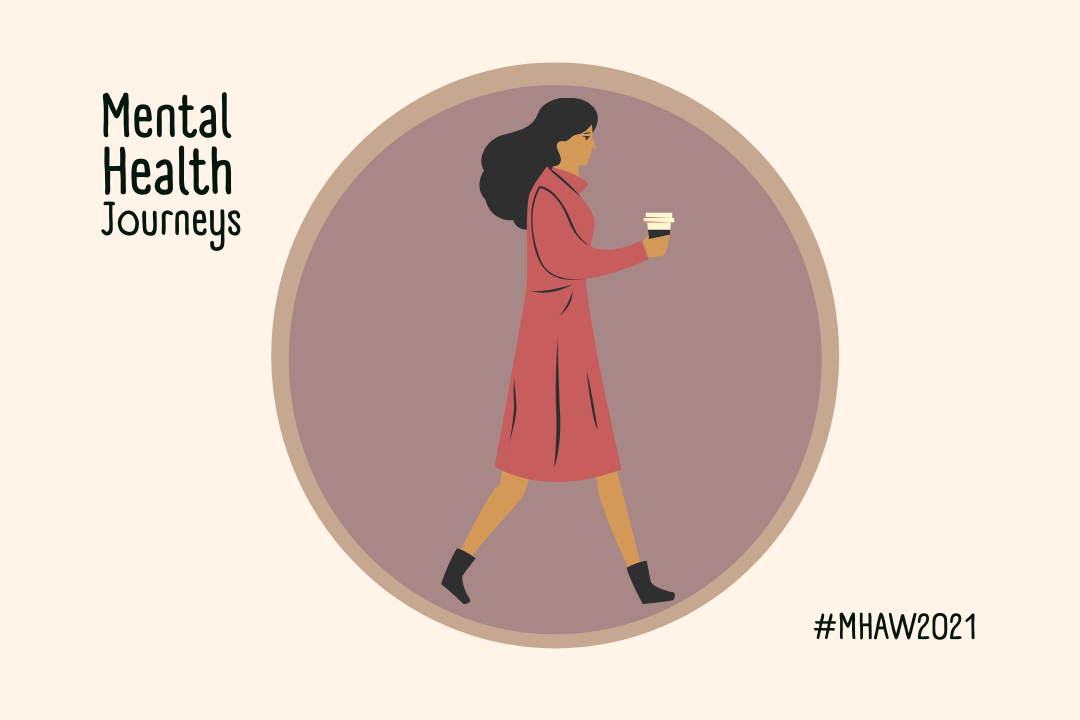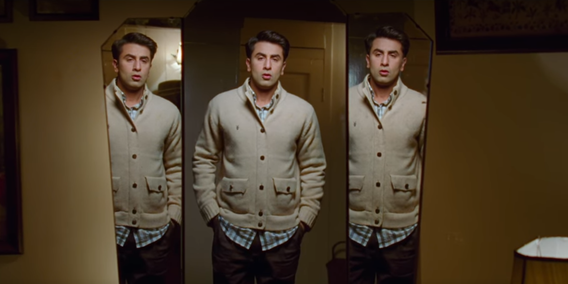Have you ever gotten into bed, all comfortable and ready to sleep, then felt like you left the geyser on? Or felt an itch just because your slippers are facing opposite ways? Maybe even double locked your door? Here’s a follow-up question: Have you (post rectifying the above, obviously) been able to take a deep breath and go back to sleep?
When I was 9 years old, washing my hands and checking on door handles was simply answered with a ‘She’s such a careful little child.’ or a ‘It’s just a quirk, she’ll grow out of it!’. Years went by, and I grew out of a lot of things, jeans, Hannah Montana, and conventional eyesight (I got glasses) included. What I didn’t grow out of were my ‘quirks’.
As I grew, they did too. Different forms. Sometimes hand-washing, sometimes checking on the geyser, and ever so often, letting the phone ring exactly 4 times before I answered it. It’s concerning for a reader as I specify them, but I guarantee in real time, it had a way of concealing itself. It disguised itself as a habit, a responsible tick, or a normal waiting period before I received a call.
It wasn’t until I was 16 that I realized the word for where I was coming from. I truly did believe I was special. Careful and braver than others for caring about myself and those around me. That’s all before I read the words OCD in big bold letters across my 11th grade Psychology textbook.
I was both excited and terrified of what I had discovered. Doing my own research on the side, I thought if I could read up on it and understand it, I could control it.
Obsessive Compulsive Disorder, is one that causes repeated, and unwanted thoughts and sensations (obsessions) which then compel a person to do something over and over again (compulsions). It’s like an alarm, that only gives you the option to be switched off once you’ve guaranteed that you’re awake. Reading up on OCD helped me realize the true nature of my behaviour. Best, I can describe it as less of that friend who shares their homework and more of that mean teacher who piles you with homework and surprise quizzes.
Okay, so I’d read up on it a considerable amount, right? I knew all my underlying tendencies like the back of my hand. I knew the different kinds of OCD I could be diagnosed with. I knew. That’s enough, right? Now I’d be left alone? Look at me, self-diagnosed brilliant psychology prodigy, all of 16!
No. Knowing, did not help. Let me correct myself, knowing did not help completely.
While it gave me immense relief that there was a name for my lived experiences (and I wasn’t the only one), it didn’t put an end to it. WHY?! Why was I still running late for school because I had to check the door multiple times? Why did I think something terrible would happen to my family if I didn’t fold that top and put it inside my closet instead of tossing it. WHY?!
The answer lay in the question itself. Why. I had read up enough to know the ‘What’ of my disorder. I had no idea of the ‘Why’.
Why was it happening to me? Why did it ever begin? Why did it begin when it did? The ‘why’ of it all pushed me to eventually tell someone I trusted about my experience and they made sure to introduce me to another word from my Psychology textbook. THERAPY.
It wasn’t easy signing up for therapy at 18. I was so young, and I was just starting college. None of my other friends had been to therapy. How would this help me? OCD isn’t even spoken about enough. Therapy was for serious problems like depression, right? Why was I here? What if they didn’t understand me or my bizarre problem? What if they told me it was just a quirk all over again?
All of that changed when I actually had my first session. Therapy helped me understand the ‘Why’, the ‘What; and most importantly, the ‘How’ to get better.
The reason I’m sharing this is because growing up I had very twisted interpretations handed to me of my mental health. It was either absolute disregard and mockery; where all of my lived experiences were shoved into the box of ‘She’s so disciplined!’ or on the other end, personally feeling shameful and scared to have something not a lot of people talk about. There was no in between.
While this in no way is me disregarding any mental illness, OCD and anxiety disorders are unfortunately shed less light upon in mainstream psychology discourses. Perhaps that is also because it’s a disorder that has mastered the art of disguise. Even today, there are only a few people in my life that actually know of or the extent of my experience. I’d also like to clarify that in no way am I trying to brand OCD as a deeply scary (or scarring) mental illness. It isn’t. With the right support and treatment, it’s very much manageable.
Today, I am 22 years old, and at a much better place. While OCD is very much still a part of my life, it’s much easier to handle.
The reason I started the story with a question is because the answer doesn’t matter. It doesn’t matter if you can peacefully go back to sleep after checking the door or if you need to re-check it multiple times. It doesn’t matter if you have OCD, think you have it, or maybe, don’t have it at all. What matters is that you know its importance and prevalence. What matters is that you try reading up on it, or open a discourse around it that isn’t romanticized or misused in sentences like, ‘Ugh, I really need to make my own bed, I get so much OCD when I don’t’.
What matters is if and when someone reaches out to you with their concerns, you patiently listen. Even if you don’t completely understand, just listen and validate them. That’s literally all that you have to do. And if someone reading this has or thinks they might have OCD, you’re not alone, and it does get better.
And so will you.
raising awareness about OCD raising awareness about OCD







